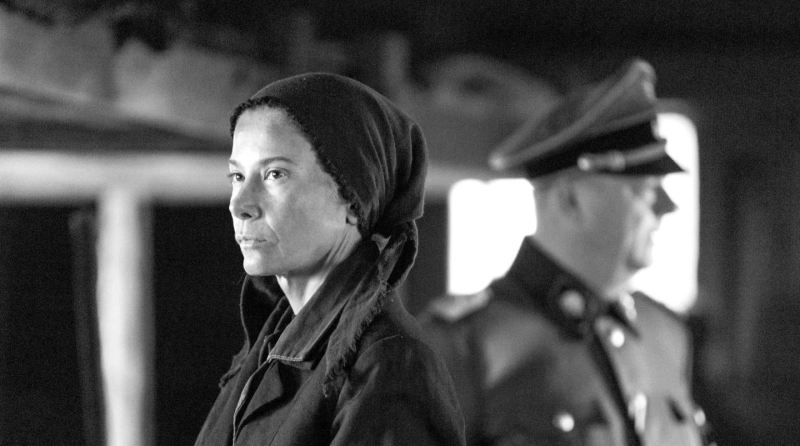« Jack the Ripper | Main | Coffee Break »
February 01, 2018
Paradise

Ray
Andrei Konchalovsky - 2016
Film Movement
I don't recall the exact situation where this came up, but I still remember my father had told me about his childhood. This was in the 1930s, in Germany, and he had a sense of what was going to happen in the country. His father, my grandfather, had expressed the feeling that the future my father feared would be impossible in the cultured country of Goethe. In Paradise, a young SS officer, Kurt, is having a conversation with Himmler. According to Himmler, Hitler's main reason for going to war is to create a paradise with German culture as its treasure. That scene made be recall my conversation with my father. But it would be a mistake to think that the kind of reasoning, either expressed by my grandfather, or by Hitler, would be exclusive to that particular time and situation.
The film is centered on Olga, a Russian princess in Paris, arrested for trying to hid several Jews. An attractive woman, she attempts to get better treatment for herself and the children she is trying to protect by offering herself sexually to the chief of police, Jules. A planned rendezvous does not happen when the policeman is murdered by two members of the resistance. At the concentration camp, Olga is reunited with Helmut, whom she had known briefly ten years earlier. Helmut is at the camp to investigate corruption by the camp staff. The two become lovers, with Olga's main motivation being the ability to protect the two boys, and as it means saving her own life within the camp. The narrative is interrupted by close-ups of Olga, Jules and Helmut, all wearing similar light colored shirts, speaking to the camera about their thought at the time.
Beyond the historical aspects, what Konchalovsky is interested in the ways people make choices and compromise themselves. Jules could well personify the concept of the "banality of evil". At no time does he appear disturbed by what he does, even when his wife suggests that history could turn on them. For Jules, his actions are all part of his function as a police officer and nothing more, even when those functions include torture. Helmut is convinced of the rightness of the Nazi philosophy. He is shown as the cultured German, with a love for Russian literature and the conviction that had he been born in Russia, he would have been a dedicated Communist. Olga teeters between selflessness and self-interest - the prisoners are often pitted against each other in the name of survival, yet she is also the one of the three major characters here that is capable of self-reflection.
Like probably most readers here, my familiarity with the films of Andrei Konchalovsky is limited to some of his work from his American period, when he was the unlikely house prestige director at Cannon Films with Runaway Train, and later, the credited director of Tango & Cash. Here, Konchalovsky is somber. Like a film from that era, Paradise is in the old Academy ratio and in black and white. Most of the shots are static with the characters moving within the frame, sometimes out of the camera's field of vision. One of the exceptions is a scene of the round-up of Parisian Jews with the camera panning to capture the action. There is also fragments from a home movie that features Helmut and Olga with mutual friends in Italy. In some of those fragments, Konchalovsky also employs dissolves with people fading in or out of the image. The effect might be akin to how his characters remember that day.
Paradise won Konchalovsky the Best Director Award at the Venice Film Festival 2016, and was Russia's entry for the Foreign Language film Oscar last year.

Posted by Peter Nellhaus at February 1, 2018 10:33 AM
